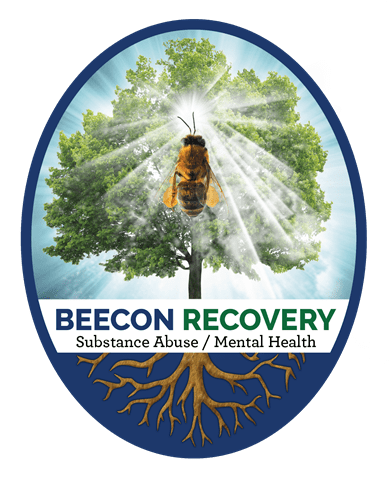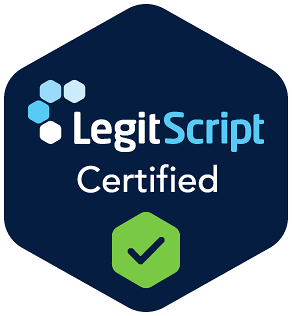Benefits of Transitioning Programs
Flexibility and Independence
One of the primary benefits of stepping down from a Partial Hospitalization Program (PHP) to an Intensive Outpatient Program (IOP) is the increased flexibility and independence it offers. IOP allows participants to continue with their daily activities, such as work, school, or family responsibilities, which is crucial for individuals who cannot commit to inpatient programs due to obligations (ASIC Recovery Services). This flexibility helps individuals maintain a sense of normalcy and balance in their lives while still receiving the support they need for recovery.
| Program | Flexibility | Daily Activities |
|---|---|---|
| PHP | Limited | Restricted |
| IOP | High | Allowed |
For more information on the differences between PHP and IOP, visit our article on what is the difference between php iop and opt in addiction treatment.
Access to Comprehensive Therapy
Another significant advantage of transitioning to IOP is the access to comprehensive therapy sessions. IOP provides a wide range of therapy options, including group and individual therapy sessions, as well as family counseling. These sessions are tailored to address the root causes of addiction, coping strategies, and relationship dynamics, facilitating a holistic approach to recovery (ASIC Recovery Services).
| Therapy Type | PHP | IOP |
|---|---|---|
| Group Therapy | Yes | Yes |
| Individual Therapy | Yes | Yes |
| Family Counseling | Yes | Yes |
The personalized treatment plans in IOP are designed to adapt to each individual’s unique needs, goals, and progress. This ensures that the recovery process is not a one-size-fits-all journey but rather a tailored approach that recognizes the individuality of each participant.
For more details on what to expect during each phase of your treatment journey, check out our article on what to expect during each phase of your treatment journey.
By transitioning from PHP to IOP, individuals can benefit from a structured yet flexible environment that supports their recovery while allowing them to maintain their daily responsibilities. This approach not only promotes independence but also ensures access to comprehensive therapy, making it an effective step in the journey towards long-term recovery. For more information on how to maintain progress between outpatient sessions, visit our article on how to maintain progress between outpatient sessions.
Support and Community Integration
Building a Supportive Network
At Beecon Recovery, we understand the importance of a supportive network in the journey to recovery. Participating in an Intensive Outpatient Program (IOP) creates an opportunity to build a network with peers undergoing similar experiences. This network is invaluable, offering a platform for sharing experiences, challenges, and victories.
A supportive network can significantly enhance the recovery process by providing emotional support, encouragement, and accountability. Engaging with others who understand the struggles and triumphs of recovery fosters a sense of belonging and reduces feelings of isolation. This community aspect is a cornerstone of our IOP, helping individuals to stay motivated and committed to their recovery goals.
Personalized Treatment Plans
At Beecon Recovery, we emphasize the importance of personalized treatment plans tailored to each individual’s unique needs. Our IOP adapts to the requirements, goals, and progress of each participant, recognizing that recovery is not a one-size-fits-all journey (Charlie Health).
Personalized treatment plans involve a comprehensive assessment of each individual’s situation, including their mental health, substance use history, and personal goals. This allows us to create a customized approach that addresses the specific challenges and needs of each participant. Our team of experienced professionals works closely with individuals to adjust their treatment plans as they progress, ensuring that they receive the most effective care at every stage of their recovery.
For more information on how clinical assessments determine your level of care, visit our article on how clinical assessments determine your level of care.
By focusing on building a supportive network and providing personalized treatment plans, Beecon Recovery ensures that individuals receive the comprehensive care and community integration they need to succeed in their recovery journey. For more details on what to expect during each phase of your treatment journey, visit our article on what to expect during each phase of your treatment journey.
Continuity and Cost-Effectiveness
Step-Down Approach
At Beecon Recovery, we believe in the benefits of stepping down from PHP to IOP as a crucial part of the recovery journey. The step-down approach ensures continuity of care, providing a structured yet flexible environment that supports ongoing recovery. Intensive Outpatient Programs (IOP) serve as a bridge between the more intensive Partial Hospitalization Programs (PHP) and less intensive outpatient programs.
This approach allows individuals to gradually transition from a highly supervised setting to one that offers more independence while still maintaining access to essential therapeutic support. By stepping down to IOP, individuals can continue to receive personalized treatment plans tailored to their unique needs, adapting to their progress and goals (ASIC Recovery Services).
Cost Comparison
One of the significant advantages of transitioning from PHP to IOP is the cost-effectiveness of the treatment. PHPs typically involve more intensive medical oversight and a higher frequency of sessions, which can result in higher costs. In contrast, IOPs offer a more affordable option while still providing comprehensive care.
| Program Type | Average Weekly Cost | Sessions per Week | Medical Oversight |
|---|---|---|---|
| PHP | $700 – $1,200 | 5-7 | High |
| IOP | $250 – $500 | 3-5 | Moderate |
Data sourced from Charlie Health and Compassion Behavioral Health
By choosing IOP, individuals can benefit from a structured program that includes individual therapy, group therapy, and skill-building sessions, but with less medical oversight than PHPs. This balance of structure and flexibility makes IOP a cost-effective option for those continuing their recovery journey.
For more information on the differences between PHP and IOP, visit our article on what is the difference between php iop and opt in addiction treatment. Additionally, understanding insurance coverage for these services can further aid in making informed decisions about treatment options (understanding insurance coverage for php and iop services).
At Beecon Recovery, we are committed to providing tailored programs that meet the diverse needs of our clients. Whether transitioning from inpatient to outpatient care or navigating multiple levels of care, our team is here to support you every step of the way.
Structured Environment Comparison
When considering the benefits of stepping down from PHP to IOP, it’s essential to understand the differences in the structured environments provided by each program. This comparison will help you make an informed decision about the best treatment path for your needs.
PHP vs. IOP Sessions
Partial Hospitalization Programs (PHPs) and Intensive Outpatient Programs (IOPs) differ significantly in terms of session frequency and duration. PHPs typically require patients to attend sessions 5-7 days a week, with each session lasting 4-6 hours a day. This intensive schedule ensures that patients receive comprehensive care and support during the critical stages of their recovery.
In contrast, IOPs offer a more flexible schedule, with patients attending sessions 3-5 days a week, each lasting 2-4 hours. This reduced time commitment allows individuals to gradually reintegrate into their daily lives while still receiving the necessary therapeutic support.
| Program Type | Frequency (Days/Week) | Duration (Hours/Day) |
|---|---|---|
| PHP | 5-7 | 4-6 |
| IOP | 3-5 | 2-4 |
Supervision and Oversight
The level of supervision and medical oversight is another critical factor that distinguishes PHPs from IOPs. PHPs provide a highly structured environment with a strong emphasis on medical and psychiatric care. Patients in PHPs are closely monitored by a multidisciplinary team, including psychiatrists and nurses, who are available to address immediate medical or psychiatric needs and make necessary medication adjustments.
In contrast, IOPs offer structured therapy sessions with less frequent medical oversight. The focus in IOPs is more on therapeutic interventions and skill-building, making them suitable for individuals who are stable enough to manage their symptoms with less continuous medical supervision (Charlie Health). This approach allows patients to develop independence while still receiving essential support.
| Program Type | Supervision Level | Medical Oversight |
|---|---|---|
| PHP | High | Continuous |
| IOP | Moderate | Periodic |
Understanding these differences can help you determine which program best suits your needs. For more information on transitioning between levels of care, visit our article on transitioning from inpatient to outpatient: what you need to know.
By choosing the right program, you can ensure that you receive the appropriate level of care and support throughout your recovery journey. For more details on how clinical assessments determine your level of care, check out our article on how clinical assessments determine your level of care.
Transitioning to Everyday Life
Balancing Responsibilities
One of the significant benefits of stepping down from PHP to IOP is the ability to balance responsibilities while continuing the recovery journey. PHP and IOP programs allow individuals to pursue recovery without putting other aspects of their lives on hold, such as spending time with family, maintaining employment, and getting sober simultaneously. This flexibility is crucial for those transitioning from inpatient care to everyday life.
| Program | Hours per Week | Flexibility |
|---|---|---|
| PHP | 20-30 | Moderate |
| IOP | 9-19 | High |
By participating in an IOP, individuals can attend therapy sessions while managing their daily responsibilities. This balance helps reinforce the skills learned during treatment and promotes a smoother transition to a sober lifestyle. For more information on the differences between PHP, IOP, and OPT, visit our article on what is the difference between php iop and opt in addiction treatment.
Aftercare Support
After completing a PHP program, individuals often transition to a lower level of care, such as IOP or outpatient therapy. Engaging in aftercare services like individual counseling, group therapy, and support group meetings is essential to maintain sobriety and prevent relapse. After completing an IOP program, individuals can benefit from continued aftercare support, including therapy sessions, relapse prevention planning, and access to support groups.
| Aftercare Service | Frequency | Purpose |
|---|---|---|
| Individual Counseling | Weekly | Personalized support |
| Group Therapy | Weekly | Peer support |
| Support Group Meetings | As needed | Community integration |
These aftercare services provide ongoing support and help individuals navigate the challenges of maintaining sobriety in everyday life. For more details on what to expect during each phase of your treatment journey, visit our article on what to expect during each phase of your treatment journey.
By offering a structured environment and comprehensive aftercare support, Beecon Recovery ensures that individuals have the resources they need to succeed in their recovery journey. For more information on how to maintain progress between outpatient sessions, check out our article on how to maintain progress between outpatient sessions.
Tailored Programs for Different Needs
At Beecon Recovery, we understand that each individual’s journey to recovery is unique. That’s why we offer tailored programs designed to meet the specific needs of different age groups and treatment requirements. Our programs are structured to provide the best possible care and support for our clients.
Teen and Young Adult Programs
Teens and young adults face unique challenges when it comes to addiction recovery and mental health treatment. Our programs are specifically designed to address these challenges, providing a supportive and structured environment that promotes healing and growth.
Partial Hospitalization Programs (PHPs) offer a high level of care, with daily therapy sessions lasting several hours. This intensive therapeutic support is similar to residential treatment, but unlike residential treatment, teens and young adults in PHPs return home after treatment. PHPs are ideal for those struggling with severe mental health conditions like suicidality or self-harm, as they provide close supervision and intensive therapy.
Intensive Outpatient Programs (IOPs) are designed to be flexible, often offering therapy sessions in the afternoon or evening. This flexibility makes it easier to fit treatment into a teen or young adult’s busy schedule, allowing them to balance therapy with school and other daily activities (Embark Behavioral Health). IOPs are suitable for those who need a structured setting but require fewer sessions each week compared to PHPs.
| Program Type | Frequency | Duration | Ideal For |
|---|---|---|---|
| PHP | 5+ days/week | 5+ hours/day | Severe conditions, close supervision |
| IOP | 3+ days/week | 3+ hours/day | Flexible schedule, balance with daily activities |
Evidence-Based Treatment Approaches
At Beecon Recovery, we believe in the power of evidence-based treatment approaches. These methods are grounded in scientific research and have been proven effective in treating addiction and mental health issues. Our programs incorporate a variety of evidence-based therapies to ensure comprehensive and personalized care.
Cognitive Behavioral Therapy (CBT) is a cornerstone of our treatment approach. CBT helps clients identify and change negative thought patterns and behaviors, promoting healthier coping mechanisms and improved mental health.
Dialectical Behavior Therapy (DBT) is another key component of our programs. DBT focuses on teaching clients skills for emotional regulation, distress tolerance, and interpersonal effectiveness, which are crucial for long-term recovery.
Motivational Interviewing (MI) is used to enhance clients’ motivation and commitment to change. This client-centered approach helps individuals explore and resolve ambivalence about their recovery journey.
Family Therapy is also an integral part of our treatment programs. Involving family members in the recovery process can provide additional support and improve communication and relationships within the family unit.
By offering tailored programs and evidence-based treatment approaches, Beecon Recovery ensures that each client receives the care and support they need to achieve lasting recovery. For more information on the different levels of care and what to expect during each phase of your treatment journey, visit our articles on what to expect during each phase of your treatment journey and how clinical assessments determine your level of care.






